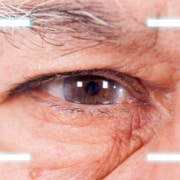Can Cataract Surgery Reduce Glare, Halos, and Night Vision Problems?
Glare from oncoming headlights, halos around streetlights, and worsening night vision can be more than an annoyance. These symptoms are often linked to cataracts and deserve prompt attention, especially when night driving starts to feel stressful or unsafe.
At Maehara Eye Surgery and Laser in Honolulu, care is led by Dr. Jeffrey Maehara. He is board-certified by the American Academy of Ophthalmology and fellowship-trained as an Anterior Segment Glaucoma Specialist, with additional training in preventive and integrative medicine. The clinic was founded over 30 years ago by Dr. Dennis Maehara, and that long history of focused eye care continues today.
When cataracts are contributing to glare and halos, cataracts surgery can be an effective option to improve clarity, contrast, and confidence after dark.
Why Cataracts Can Cause Glare And Halos
A clear lens focuses light into a sharp image. A cloudy lens does not. As cataracts progress, light is more likely to disperse in different directions, especially in low light conditions when pupils enlarge. This is why symptoms often show up first at night.
Common signs linked to cataracts include:
- Halos around lights
- Increased sensitivity to glare
- Reduced contrast and dimmer vision
- Colors that look faded
- Frequent changes in glasses prescriptions
How Cataracts Surgery Can Improve Night Vision
Cataracts surgery removes the cloudy natural lens and replaces it with a clear intraocular lens. By removing the source of light scatter, many people notice sharper vision and improved contrast, which can make night driving more comfortable. One key goal is to help reduce the visual noise that makes headlights and streetlights seem overwhelming.
A consultation can help confirm whether cataracts are the main cause of symptoms or whether another issue is contributing, such as dry eye, corneal changes, or pupil-related effects.
Lens Options And Nighttime Comfort
Not all lens choices are the same. Some intraocular lenses are designed to prioritize distance clarity, while others aim to reduce dependence on glasses at multiple ranges. Lifestyle matters, especially for those who drive frequently at night in Honolulu.
A pre-surgery discussion may cover:
- Night driving habits and visual priorities
- Existing astigmatism and whether it should be corrected
- The best balance of clarity, range of vision, and visual side effects
Cataract Symptoms And Treatment Options In Honolulu, HI
If glare, halos, or night vision problems are interfering with daily life, a cataract evaluation can help pinpoint the cause and outline next steps. Schedule a consultation with Maehara Eye Surgery and Laser in Honolulu, Hawaii, to discuss cataracts, the possibility of cataract surgery, and lens options that fit your nightly routine and visual goals.
Call 808-955-3937 to book an appointment and get back to feeling confident behind the wheel after dark.





 You may enjoy having a cloudy fall day to take in the changing leaves and weather around you, but the last thing you likely want is a clouding of your vision. As a disease that affects over 24 millions Americans, cataracts is an eye disease that causes a clouding of the lens which makes it difficult for light to properly enter the eye. Luckily,
You may enjoy having a cloudy fall day to take in the changing leaves and weather around you, but the last thing you likely want is a clouding of your vision. As a disease that affects over 24 millions Americans, cataracts is an eye disease that causes a clouding of the lens which makes it difficult for light to properly enter the eye. Luckily,